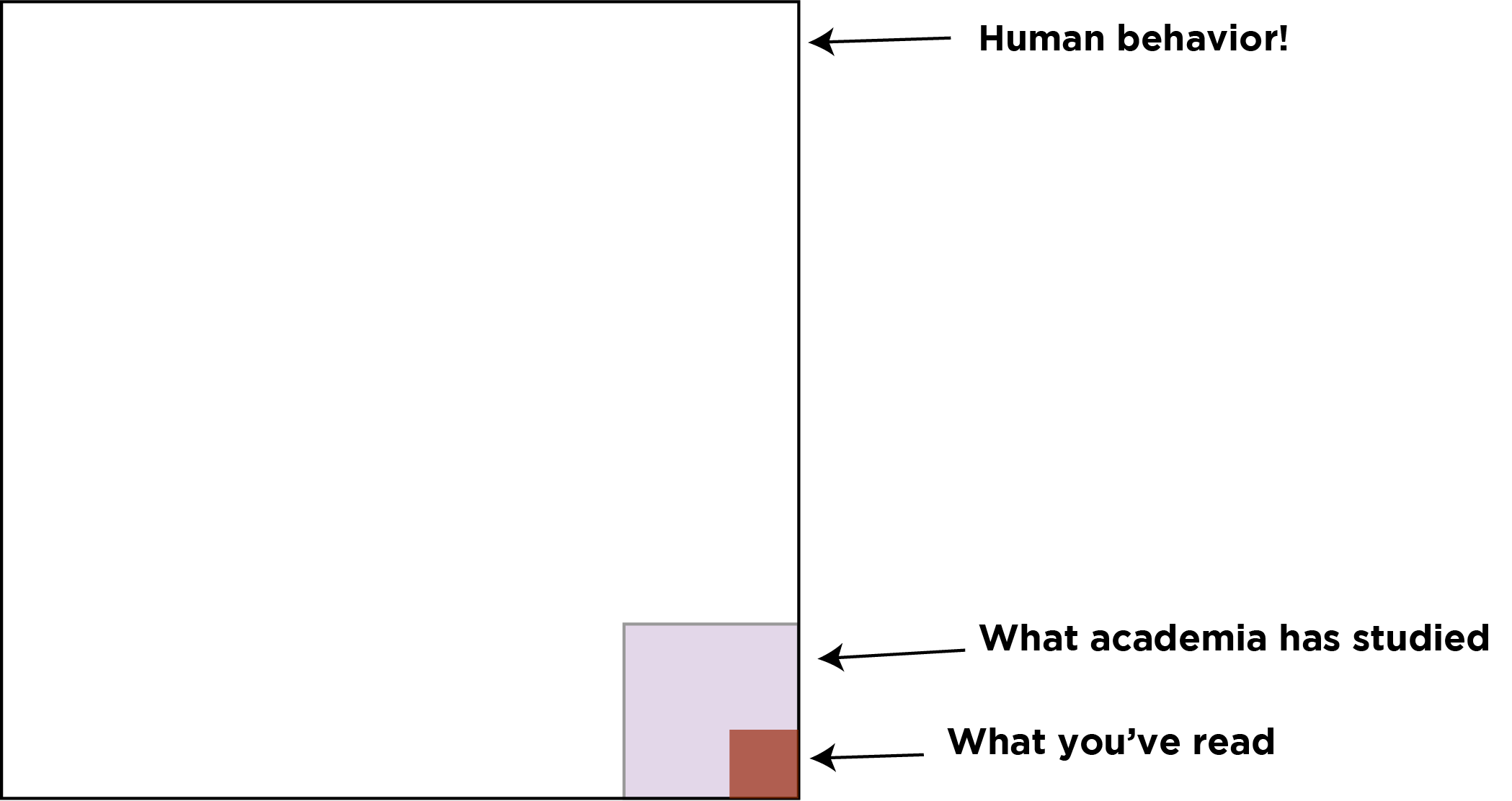It’s really easy to overestimate how much you know about a topic. Even—or especially—if you’re an expert. A lot of academics/psychologists I know or have worked with have a tendency to overlook what Daniel Kahneman called the most common bias: the “What You See is All There Is” bias.

Take “Why Most Published Research Findings Are False.” Researchers gather data, look for patterns, and abandon projects that show no signs of promise. The “file drawer” problem is just a part of scientific life; as a result, they only publish “statistically significant” findings.
“Moreover, for many current scientific fields, claimed research findings may often be simply accurate measures of the prevailing bias.”
“Why Most Published Research Findings Are False.”
Can you see a real-world equivalent? Instagram! People only post their gardens at peak rosiness, the highlight reel of their relationships, their kids when they’re not throwing up or hitting each other, and those three seconds in Thailand when there weren’t a million influencers in the background of the beach.
Researchers collect so much data that never sees the light of day. And because they do so much work that doesn’t see the light of day, how can we be sure that what does get published isn’t just due to chance?

Here’s the most important diagram you’ll see today, from this paper on how world-class athletes really become experts.
We only see the top line – the overall skill level. But each skill is made up of a million smaller component pieces—writing a little every day won’t make you better. Everything has to come together. Getting better takes time; it’s lumpy, uneven, and lots of variables have to come together.
Today’s takeaway?
